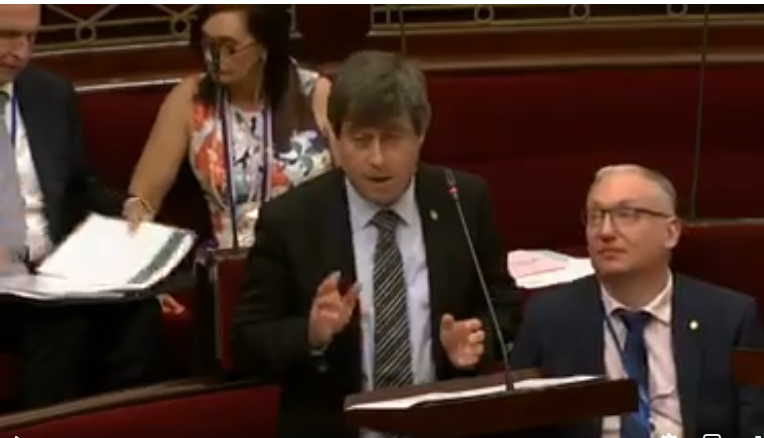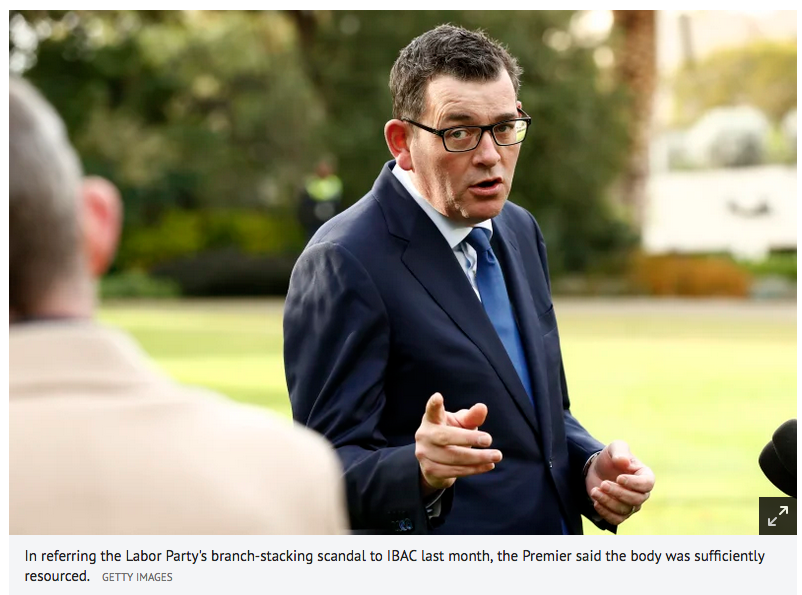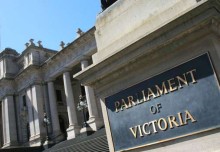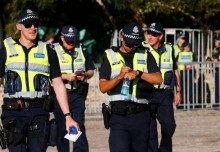So much has happened in 2020 we thought we should do a recap
Monday 12th October 2020
Five minute read
So, where are we at in the push to having independent investigations of police?
For the past two years the Andrews government has been sitting on an important report that recommends a system that could independently investigate serious police corruption and misconduct.
This bipartisan report made 69 significant recommendations to improve the transparency, impartiality, effectiveness and efficiency of how allegations of police misconduct are dealt with. They determined that serious police misconduct could not be left to the police to investigate and that probes should instead be conducted by Victoria’s corruption watchdog—that is, the Independent Broad-based Anti-corruption Commission, IBAC. It has taken Victorian legal centres, community agencies, human rights organisations, families and many individual victims of police violence many years of campaigning and advocacy to get to this point.
The government was supposed to respond to the report within six months. So why such a huge delay?
It’s most likely that the government baulked at such a significant reform due to the opposition of the powerful Police Association and some sections of Victoria Police command.
Publicly, the Andrews government has claimed it is “carefully considering the IBAC Committee’s 69 recommendations” and is waiting on the recommendations from the Royal Commission into the Management of Police Informants (Informer X) which have now been delayed until November 2020.
So what has happened so far in 2020 and will it be enough to finally get this government to act on November 30?
Motion calling for independent investigations passed in Victorian upper house
On 18 March 2020, just as Victoria was going into lockdown for the first time, a motion was brought to the Legislative Council by Tim Quilty MLC of the Liberal Democrats.
It called upon the government to increase IBAC funding and powers towards creating the new Police Corruption and Misconduct Division within IBAC and implement the 69 recommendations from the 2018 IBAC Inquiry.
The IBAC motion was supported by Fiona Patten of the Reason Party, Samantha Ratnam of the Greens, Mr. Hayes of Sustainable Australia and the Liberal Democrats. Stuart Grimley from Derryn Hinch’s Justice Party and a member of the Integrity and Oversight Committee (IOC), supported the increase of funding but was uncertain of increasing IBAC powers.
Ms. Harriet Shing of ALP echoed the government’s line that IBAC is already adequately funded and has enough powers.
The fact the motion passed unopposed indicates the degree of support this important systemic reform has within Victoria’s current parliament.
A call to the United Nations
In April 2020, over 200 not-for-profit and community organisations across Australia signed on to a major report calling on the Australian Government to strengthen its commitment to human rights in its laws, policies and practices.
Amongst a wide range of important demands the report stated that it is critical that independent bodies are resourced to investigate human rights abuses by police.
“Australia must ensure that all jurisdictions establish independent investigative bodies that meet international human rights standards.”
The Australian Government will face intense scrutiny on this and many other aspects of its human rights record when it appears before the United Nations Human Rights Council in Geneva for its major four yearly human rights review, called the Universal Periodic Review (UPR) in early 2021.
By itself, condemnation by the United Nations will have little effect, but its another reminder that this is an international human rights issue that wont be going away.
A copy of the Joint NGO Report can be found here.
IBAC findings on the Hares & Hyena’s raid
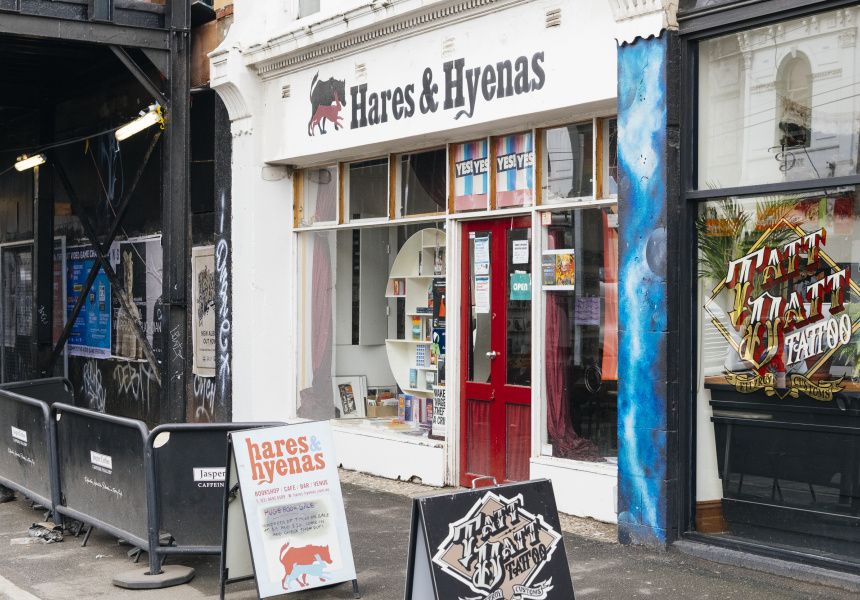
Also in April, IBAC released a brief, media release sized summary of findings relating to a bungled police raid on an apartment adjoining the long-established Fitzroy Hares and Hyenas bookshop in May 2019 that left a man with catastrophic injuries.
The findings, which largely cleared police of excessive force, were resoundingly criticised by the victim, Mr Dimopoulos, his lawyers and by Equality Australia and was met with widespread condemnation from communities who often experience police misconduct, abuse or targeting. Its findings about he lawfulness of the arrest and use of force was criticized as ‘legally contradictory’
Australian LGBTIQ advocate and member of the Victorian LGBTIQ taskforce, Jamie Gardiner, said he was outraged by the IBAC report, arguing that it fails to acknowledge the history of persecution experienced by the gay community, labelling it a “total media fail” for both IBAC and Victoria Police.
The Victorian Gay and Lesbian Rights Lobby (‘VGLRL’) wrote to IBAC and to the parliamentary Integrity and Oversight Committee, which oversees IBAC legislation, highlighting the “perennial issues hampering IBAC’s effectiveness as our state’s only independent avenue for investigating police misconduct and its inadequacy in light of internationally decreed human rights’ benchmarks..” and outlining the lack of faith the LGBTQI community have in IBAC’s ability to investigate police misconduct.
The letter also raised the secrecy provisions in the IBAC Act which allows some information to dribble out into the public arena, but prevents the public from scrutinising IBAC – and police misconduct – by not releasing full reports or findings. IBAC reports are exempt from freedom of information legislation (Section, 194 IBAC Act.)
They and many other advocates highlighted the total lack of progress on the 69 recommendations, including those that oblige IBAC to take proper account of the particular needs and backgrounds of Aboriginal and Torres Strait Islander people, CALD (culturally and linguistically diverse) communities, women (especially those experiencing family violence), people who have a disability, young people, drug users, the LGBTQI community, people experiencing social or economic disadvantage and any other vulnerable complainants, and ensure that they are supported throughout the complaints process. (Recommendation 16).
The IBAC findings demonstrated that, like any court outcome, an independent investigation wont always go in favour of the victim. But it also showed how much work there was ahead in ensuring Victorians had a police complaints system that was transparent and trusted.
Historic Ruling in the Tanya Day death in custody inquest
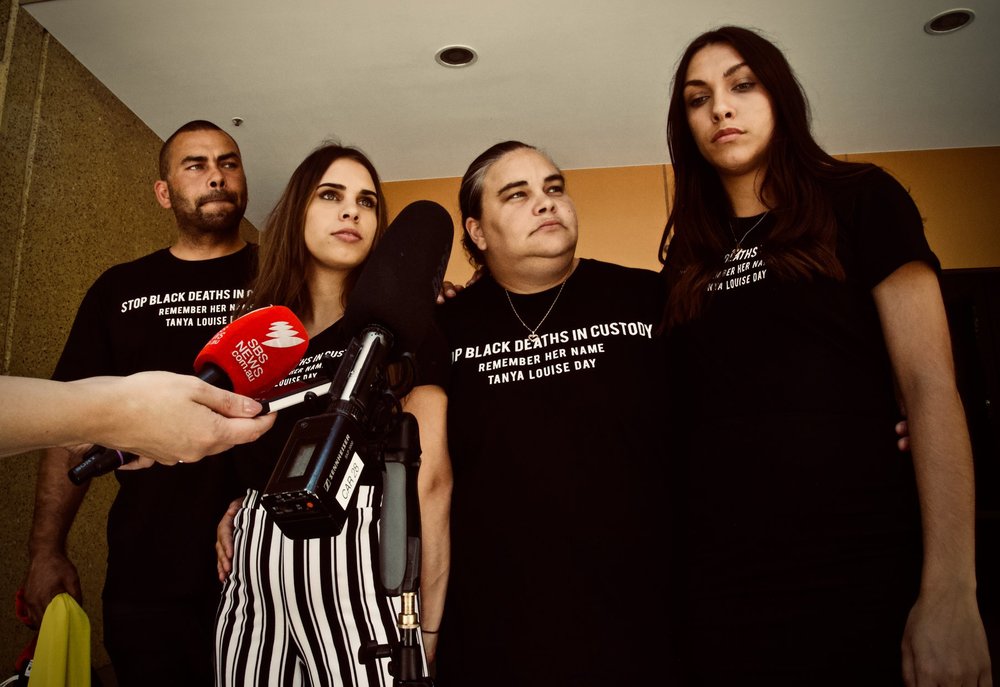
Photo: hrlc.org.au
In a landmark ruling on 9 April 2020, the Coronial Inquest into the death in police custody of Yorta Yorta woman, Tanya Louise Day, found a ‘possibility’ of an indictable offence and recommended that the two police officers involved in monitoring Tanya be investigated by the Director of Public Prosecutions.
The Coroner also recommended that Victoria Police does not investigate their own officers when it comes to Aboriginal deaths in custody. This ruling came after a long and arduous battle for justice by the family of Auntie Tanya Day who have consistently raised concerns about the independence of police investigating the death during the inquest. It provides the clearest possible reason yet why the Victorian Government must finally commit to independent investigations.
The coronial system in Victoria plays an important role in the independent investigation of deaths for the purpose of finding their causes and how to prevent further deaths.
When a coronial investigation implicates police, or examines the practices or policies of police, engaging a police officer to carry out the investigation on behalf of the Coroner undermines this key objective of the coronial system. Coronial investigations can only be independent when an alternative to police investigators exists.
Despite the coroner’s damning findings, the Director of Public Prosecutions chose, several months later, not to prosecute the police officers involved.
After that news, the family of Tanya Day renewed their demands upon the Andrews Government to commit to independent investigations of deaths in custody.
“Our mum’s case shows why it’s wrong for police to be investigating the actions of their own colleagues. From the outset, we asked for an independent investigation – instead, we got police discarding important evidence that made it look like they were covering up. When someone dies at the hands of the police, the law should require a transparent investigation, so that there can be truth and accountability.”
“Black lives matter. And black voices must be heard”

Black Lives Matter rally in Melbourne, (AAP Image/James Ross)
The massive surge of Black Lives Matter protest events that broke out around the world after the brutal killing of George Floyd in Minneapolis in May 2020 heralded a significant shift in the narrative around police brutality in general and in Australia, Aboriginal deaths in custody in particular.
In June, Change the Record, the national Aboriginal-led justice coalition of Aboriginal peak bodies and non-Indigenous allies called for an end to racist policing and for police accountability by “ending the practice of police investigating police, and legislating for independent investigations of deaths in custody and resourcing independent police oversight bodies.”
The huge Black Lives Matter rally in Sydney in June 2020 prompted the NSW State Government to launch a cross party parliamentary inquiry into the state’s investigations of deaths in custody after a unanimous motion acknowledged “the unacceptably high level of First Nations people in custody” in NSW. It is being hailed as chance to end ‘police investigating police’.
It looks like this will be a similar inquiry in scope to the one held in Victoria over 2017-2018. We hope that the NSW government is more willing to act upon its recommendations.
The Law Council of Australia has also supported a process of independent investigation, as part of a suite of justice reforms.
In its policy statement on Black Lives Matter, NATSILS, the National Aboriginal and Torres Strait Islander Legal Services, said that the current system of “police investigating themselves when complaints are made against them is fundamentally flawed.”
“As recommended by the Royal Commission, we demand an independent oversight body for all state, territory, and federal police and prison complaints, this needs to include complaints against corporate prisons and contractors. This body needs to be properly resourced, report directly to parliament, and have sufficient powers to refer matters for criminal investigation.”
In Victoria, the Premier Andrews, despite opposing the protests, was prompted to tweet on the 3rd June; “Black lives matter. And black voices must be heard”.
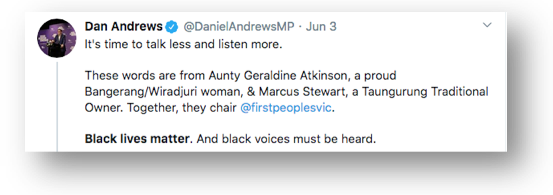
We ask whether Premier Andrews has heard ANY of the voices above.
When police fail to protect survivors of family violence
In June 2020 the ABC broke a story of a mother and her son who suffered years of abuse at the hands of a Victorian police officer. Michelle* was subjected to serious physical, emotional and verbal attacks by her former spouse, who has since been convicted.
The story also exposed what was a dangerous breach of privacy by Victoria Police. Michelle’s escape plans were shared by the police investigator amongst officers in a Melbourne police station. Victoria Police was forced to acknowledge that there were serious conflicts of interests in its internal complaint and investigation procedures.
After the story went to air, IBAC announced that it would conduct its own investigation.
 During an ABC Mornings interview, Shadow Special Minister of State Kim Wells, who was Chair of the 2018 IBAC Committee, stated that this breach might have been avoided had the 69 recommendations that the committee made back in 2018 were implemented already.
During an ABC Mornings interview, Shadow Special Minister of State Kim Wells, who was Chair of the 2018 IBAC Committee, stated that this breach might have been avoided had the 69 recommendations that the committee made back in 2018 were implemented already.
Recommendation 33 in the IBACC Inquiry report states that if there is a conflict of interest, as there was in this case, the complaint should be investigated by IBAC and not Victoria Police.
Lauren Caulfield, coordinator of the Policing Family Violence: Changing the Story project, said Michelle’s story was “frightening and appalling…Women who experience violence by police are often managing significant risk while more isolated, and having to either avoid or navigate service systems to manage danger and keep themselves and their children safe.”
“Knowing that complaints will be internally investigated by Victoria Police, many women do not make formal complaints.”
The Policing Family Violence: Changing the Story, an integrated partnership project involving Flat Out, The Law & Advocacy Centre for Women (LACW), Flemington Kensington Community Legal Centre, St Kilda Legal Service and Inner Melbourne Community Legal, is calling for the independent investigations of complaints about duty failure in the policing of family violence that can hold police accountable but will also increase women’s safety.
*name changed.
We saw how independent investigations can work with a rare guilty verdict
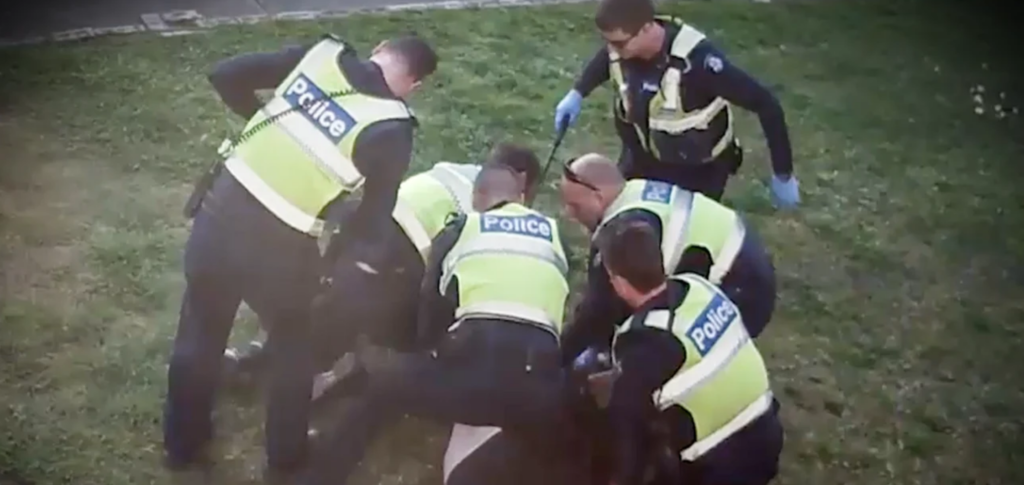
Remember this image?
Three years after this brutal assault was captured on CCTV, three of these Victoria Police officers, John Edney, Florian Hilgart and Brad McLeod, were found guilty of unlawful assault on a disabled Melbourne pensioner named John Goutzoulas during a September 2018 arrest.
Guilty verdicts in police assault cases are very rare. Without clear evidence gathered early, independent witnesses or, as in this case, CCTV footage, cases against police often fall down.
It took assertive legal defence and advocacy, an investigative journalist exposing the CCTV footage, a national outcry, and an independent investigation by IBAC to secure these convictions.
John still suffers from PTSD and is still haunted by the attack.
This assault only gained international attention after a joint Age / ABC investigation exposed the assault on CCTV footage in July 2018. IBAC charged the officers after conducting its own-motion investigation.
This outcome was a hopeful step in the right direction and demonstrated the importance of IBAC independently investigating complaints against police.
Yet more “shocking footage”
‘Shocking footage’ of police abuse has become almost routine in Australia these days with bystanders far more likely to whip out their phones when witnessing incidents.
But footage captured on bystander phone of a Victoria Police member stomping on a man’s head as he was being restrained on the ground on Sunday 13 September was indeed shocking.
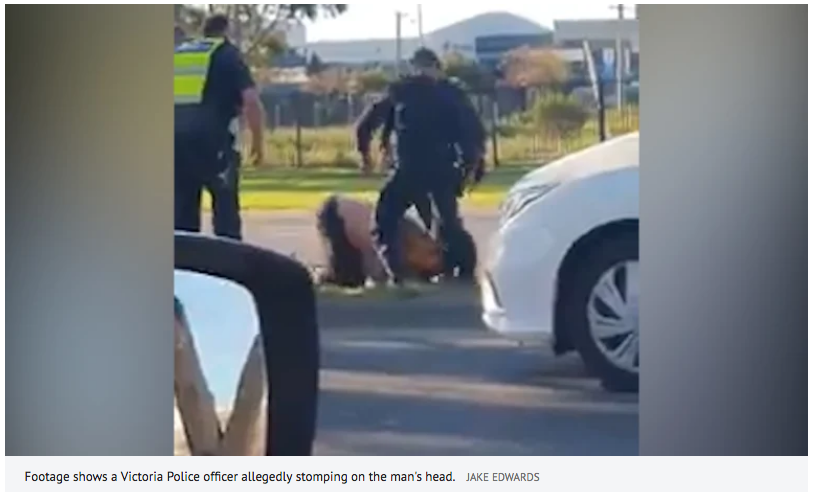
The video of the man being hit and thrown into the air by a police car surfaced as well and IBAC was prompted once again to one again launch its own independent investigation.
Victoria Police Deputy Commissioner Neil Paterson said both the officer who stomped on the man’s head and the officer who hit him with the police car were under criminal investigation. “Victoria Police will hand all of our evidence and records over to IBAC and provide them full assistance in their investigation,” he said.
Again this is welcome and should represent the norm in Victoria. It could be, if IBAC was provided with the necessary funding and resources to do so.
This 60 Minutes special investigation aired in October last year.
Still no action from Andrews
The Victorian Government has yet to take any action after all these things above.
Despite the IBAC Commissioner Robert Redlich, QC, saying clearly in a range of forums, that shortage of resources could hamper IBAC’s ability to properly complete a growing list investigations, Premier Andrews has consistently stated he believed that IBAC already has all of the necessary powers and resources it needs.
“I remain concerned that IBAC has not received any increase to its recurring budget since its inception in 2012, and this must be addressed.” Redlich said in July.
IBAC received $40.4 million from the state government in 2018-19, according to its annual report, but this is not sufficient to cover its existing expenses let alone take on the range of serious police misconduct investigation it should be able to manage.
There remains a concern that the economic effects of the COVID-19 pandemic might deter increased funding to IBAC, although Shadow Special Minister of State Kim Wells has advised that the new IBAC police division would not be expensive to implement.
The Police Accountability Project estimates that only a tiny percentage of Victoria Police’s massive $3.5 billion budget would be required to run a fully resourced, well-staffed, independent investigative division within IBAC.
Waiting on November 30…
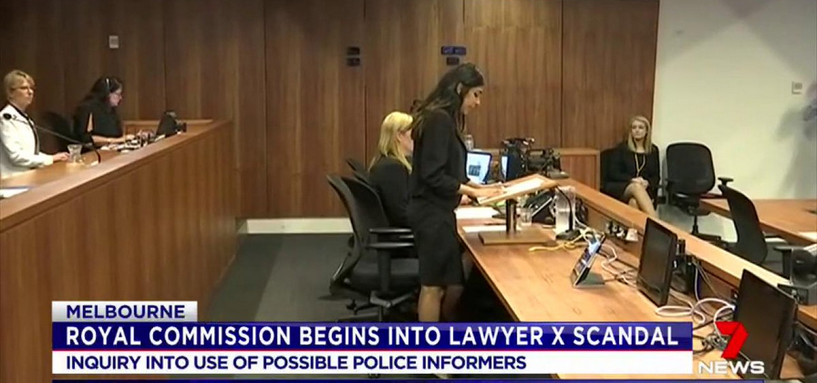
Victoria’s Royal Commission into the Management of Police Informants, led by former judge Margaret McMurdo, has heard that some of the most senior members of Victoria Police command allegedly engaged in criminal behaviour to end Melbourne’s gangland war.
Shadow attorney-general Ed O’Donohue has said that the “issues raised by the royal commission go to the heart of Victoria’s justice system.”
It is likely that its final report, which is now due by 30 November 2020, will be substantial and far reaching. Its recommendations are likely to include the need to carry out extensive investigations into criminal conduct allegations raised during the commission. This would need to be conducted by an independent investigative agency.
In his submission to the royal commission, IBAC Commissioner Redlich, said the limits of IBAC’s power to investigate police were documented two years ago in the 2018 report by the parliamentary IBAC committee. “It is unlikely that IBAC could undertake such a course in the absence of a government request and support” Redlich told the Commission.
“Should the royal commission make the recommendation foreshadowed regarding possible referral of criminal investigations, IBAC would probably not be in a position to undertake an investigation of this likely scale and complexity without additional investigative and legal resources,” he said.
“Such an investigation would require the establishment of a dedicated, multi-disciplinary taskforce.”
The Age newspaper in September questioned whether IBAC was sufficiently ‘well resourced, robust and fearless’ to make sure this can never happen again.
“The tens of millions spent on this royal commission will be wasted unless this government is prepared to give its anti-corruption body the independence, money and authority to hold all institutions to account.”
We know that the royal commission has considered the Parliamentary IBAC Committee’s 69 recommendations.
In its submission to the royal commission, the Police Accountability Project (PAP) stated that it would be important for the commission to engage with the broader systemic police accountability and misconduct investigation issues beyond the handling of police informants.
We hope that Commissioner McMurdo will agree that at an adequately resourced Police Corruption and Misconduct Division within IBAC that could robustly and fearlessly and independently investigate serious police misconduct, including those allegations raised during commission, is a much needed reform.
Whatever the recommendations of the Royal Commission, after November 30th this year, Premier Andrews and Police Minister Neville will have no more reasons to delay a response to the IBAC Committee recommendations and ensure that IBAC is given additional funding and powers in order to effectively investigate all complaints against police, including deaths in custody.
No more excuses left
There is now a strong consensus in Victoria, including in parliament about the need for independent investigations into complaints against police. Under the past six months of COVID restrictions with so many intrusive police interactions and over-reach incidents being documented, it is likely that even more Victorians would support robust police accountability measures.
Nerita Waight, CEO of the Victorian Aboriginal Legal Service said recently, “There are systemic issues within Victoria Police that need to be urgently addressed, otherwise we will keep seeing the same types of incidents over and over again. Both historic and contemporary relationships between police and Aboriginal communities have been fraught, and a commitment to addressing systemic racism and ending impunity is crucial for moving towards a more just, equal and safe future for everyone, in which Black lives truly matter.”
The age-old myths, that ‘only police can investigate police’ are well and truly debunked. The arguments of the Police Association and those still resistant to change in police command have fallen flat. Internationally the trend is overwhelming toward independent investigative bodies that can hold police to account and drastically lower impunity.
The joint parliamentary Integrity and Oversight Committee (IOC), who are well aware of the importance of not seeing the extensive work of the 2018 inquiry into Victoria police complaint system go to waste, are also waiting on the government’s response.
The Age Newspaper has stated that there is an “absolute need for Victoria to have a first-class police complaint and oversight system that has the full confidence of the public.”
“It’s time Mr Andrews listened more carefully to those who are calling for change to a system that should be better.”
There are simply no more excuses on police accountability Premier Andrews.
Of course, if the government decides to finally act on independent investigations after the Royal Commission findings, the collective work remains in ensuring that we don’t end up with a half baked compromise.
Our demand must be for a system that has enough clout and resources to effectively and rapidly investigate police abuse and police-contact deaths, is publicly transparent, supports and includes victims and their families and is truly independent.
- By Anthony Kelly and Allen Tong
POSTSCIPT 30 November 2020: Please see here for our statement on the Royal Commission Findings.
Resources and media
UPDATE 30 November 2020: Please see here for our statement on the Royal Commission Findings.
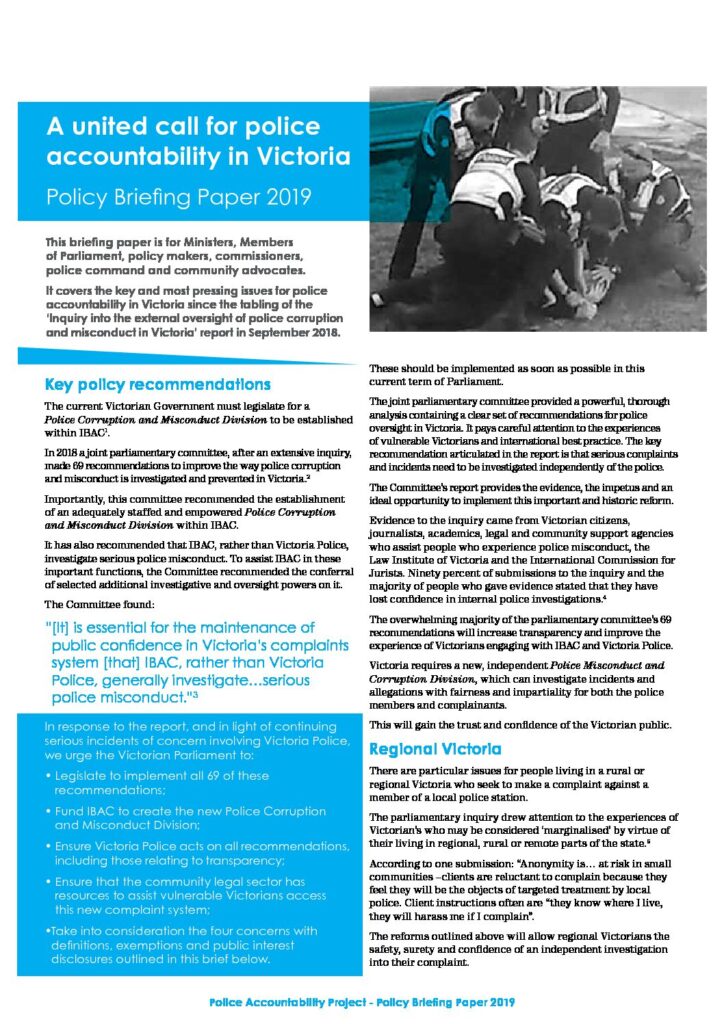
This detailed Policy Brief for legislators can be read here.
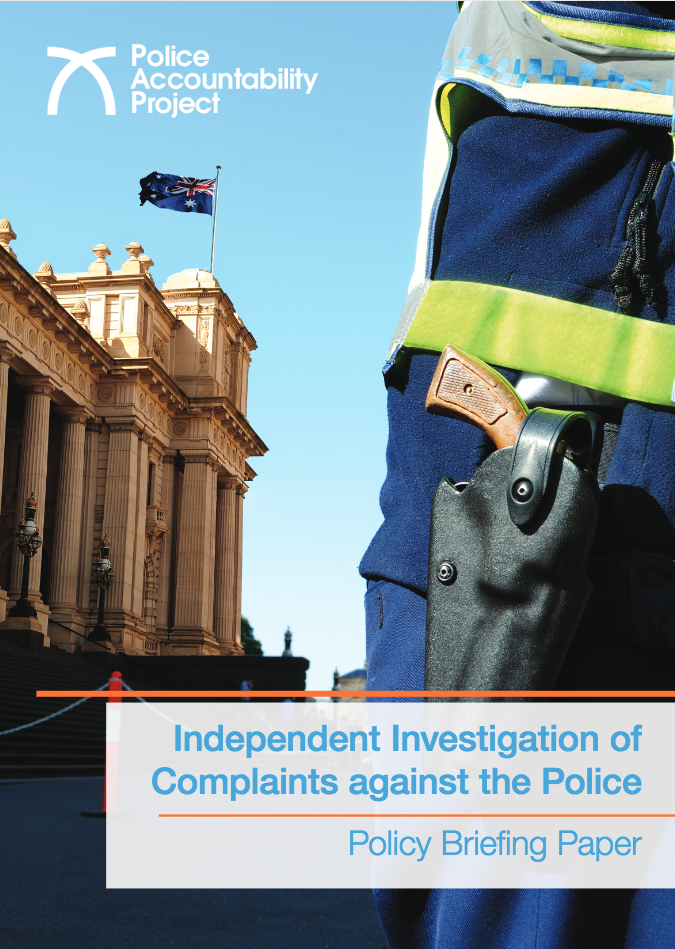
This Policy Brief provides a detailed description of what the independent investigation of complaints against the police can look like: Policy Briefing Paper.(PDF)
The parliamentary IBAC Committee report that was tabled in September 2018 can be found here.
Inquiry into the external oversight of police corruption and misconduct in Victoria4.55 MB


